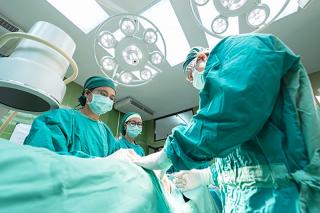Preemptive Kidney Transplants: Why Aren't They More Popular?

By Jim Myers, NKF Advocate and Kidney Advocacy Committee Regional Leader
A preemptive kidney transplant is a transplant that takes place for a kidney patient, before starting dialysis. It usually takes place before your kidney function deteriorates to the point where you need dialysis. In the U.S., only 2.5% of all kidney transplants are preemptive. Preemptive transplants are considered to be the preferred method of transplants when compared to post-dialysis transplants. The purpose of this article is to explore why they are not more popular. As we will see, the benefits of preemptive kidney transplants, by far, outweigh post-dialysis transplants as well as going on dialysis itself.
What are the Benefits and Risks of a Preemptive Transplant?
- Less risk of rejection Longer and improved quality of life
- Avoids dialysis, including risks, health complications, lifestyle burdens and dietary restrictions
- Lower costs in comparison to per person per year on dialysis
- The risks of a preemptive transplant include:
- Early exposure to the normal risks of surgery
- Potentially wasting some native kidney function
What are the Risks of Dialysis?
- bone disease
- nerve damage
- infection
- cholesterol problems
- poor nutrition
- depression
- decreased life span of a future transplanted kidney
So, What's the Hold Up?
There are both medical and economic advantages to preemptive transplants. Preemptive transplants lead to improved patient and graft survival. Cost savings are accomplished with preemptive transplants as well. Medicare spends over $89,000 per dialysis patient, per year whereas the annual cost per patient for a kidney transplant patient is $35,000.
There are 2 factors that are cited for the delay in preemptive transplants:
- The lack of timely referrals to transplant clinics.
- Extensive living donor evaluation.
Did you know you don’t need a doctor to refer you to get a transplant evaluation? You can contact any transplant center near you to start the process. Click here to learn more about finding a transplant center in your area. Donor evaluations take a mean of 10.6 months to complete. There are a number of reasons why some living donor assessments may take longer than the average length of time. Sometimes these reasons are due to the transplant team/center and others it is due to the living donor. The clear downside to longer evaluations is that some recipient candidates end up on dialysis before they can be transplanted.
This delay may be caused by:
- The self-referral by the potential recipient of her/himself to a transplant center opposed to a more organized physician referral
- Donor candidates are subject to a ‘cooling off period’ and the opportunity to reconsider to avoid the transplant center’s appearance of coercing or pressuring the donor to donate
- Donor needing to repeat lab work to ensure they’re healthy enough to donate
- Donor’s ability to find appropriate time to complete testing/evaluation outside of their normal routine
- Transplant center transplant volume and staff issues
The fix for some of these issues is to better educate patients on the true nature of preemptive transplants and donor candidates. This should lead to more timely referrals of recipient candidates and better knowledge of the options for transplants including a preemptive transplant. Steps should be taken to reduce the time donor evaluations take to complete and to be convenient for the potential donor. Most potential donors have made a personal and moral commitment to the potential recipient to donate. Delays, although unavoidable at times, can lead to donor frustration. Expedited referrals and proper education on the issue should lead to more frequent and healthy preemptive transplants. However, it is important to understand that any delay from the transplant center is almost always to ensure the safety and overall wellbeing of the donor.
The Bottom Line
Preemptive transplants are the best option for patients whose kidney disease is progressing to kidney failure. Discuss kidney transplantation with your doctor before your kidneys fail. The bottom line is this: People who receive a kidney transplant preemptively have a greater chance of survival and a better quality of life than those who receive a transplant after starting dialysis.
https://www.kidney.org/newsletter/preemptive-kidney-transplants
References:
Fishbane, S and Nair, V. Opportunities for Increasing the Rate of Preemptive Kidney Transplantation CJASN August 2018, 13 (8) 1280-1282 https://cjasn.asnjournals.org/content/13/8/1280
Gourlay, Preemptive Kidney Transplant, What’s the Hold Up?, Transplantation; July 2018-Volume 102-Issue 7-p 1035-1036, https://journals.lww.com/transplantjournal/Fulltext/2018/07000/Preemptiv...(July 2018).
Prieto, Mikel, Pre-emptive kidney transplant, https://www.mayoclinic.org/tests-procedures/pre-emptive-kidney-transplan...(2019).
Jay, Colleen, J. Reassessing Preemptive Kidney Transplantation in the United States: Are We Making Progress? 100 Transplantation, Issue 5-p1120-1127, https://www.ncbi.nlm.nih.gov/pmc/articles/PMC4989865 (May 1, 2016).
